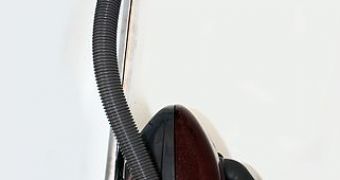Even though vacuum cleaners are expected to keep our homes clean and safe, it seems that their presence works the other way around, putting our wellbeing at risk.
According to a recent study issued by a team of Australian researchers, vacuums count as a potential source of indoor pollution, lowering air quality by spreading bacteria and fine particles of dust, considered hazardous for our health and liked to a high incidence of asthma and other severe respiratory problems.
The disturbing conclusion is part of an ample study published in the journal Environmental Science & Technology, DiscoveryNews informs.
It seems that this rule applies to most of the products commercialized on the market, regardless of the price we pay for them or the label we opt for.
In order to reach a pertinent conclusion, researchers have analyzed products introduced by 11 different manufacturing companies and have come up with similar results, allowing them to affirm that every device releases harmful particles and bacteria.
“Most people spend approximately 90% of their time indoors, and vacuum cleaners are promoted as an effective means of maintaining a clean indoor environment. Regular vacuuming is a strategy for preventing exacerbation of illness in individuals with asthma and allergic conditions However, both vacuum cleaners and the act of vacuuming can release and resuspend dust and allergens,” reveal the authors of this study.
Even if we control daily appliances at a touch of a button, we aren't always aware of the risks we're exposing ourselves to whenever we are using them.
Older appliances are considered much riskier than new ones, when it comes to the effects they have on our health. Nevertheless, even the new editions displaying HEPA (high-efficiency particulate air) filters are likely to work against us, rather than in our favor when it comes to indoor pollution.
Previous research has indicated that dangerous bacteria can live up to two weeks inside our vacuum cleaner and affect our health by worsening already existing respiratory problems, like allergies and asthma.
“Bacteria emissions from vacuums have potential to spread infectious or sensitizing aerosols, and additional investigations to more completely define their characteristics are warranted,” conclude experts from the team, planning to expand their research and establish with precision the role played by vacuums as sources of indoor pollution.

 14 DAY TRIAL //
14 DAY TRIAL //